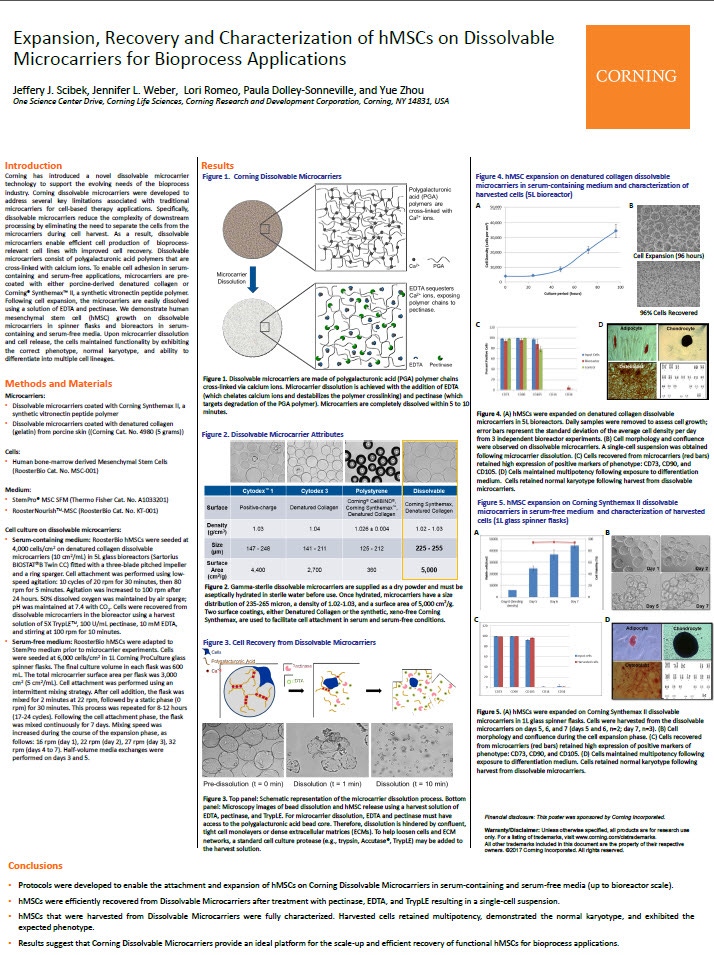Voices of Biotech
Podcast: MilliporeSigma says education vital to creating unbreakable chain for sustainability
MilliporeSigma discusses the importance of people, education, and the benefits of embracing discomfort to bolster sustainability efforts.

Sponsored by Corning
Human mesenchymal stem cells (hMSCs) are currently the most common adult stem cell type used for cell therapy applications due to their regenerative properties and ability to differentiate into multiple cell lineages (adipocyte, chondro¬cyte, and osteocyte). Traditionally, hMSCs have been cultured on two-dimensional cell culture platforms using serum-containing medium. Although these platforms can be used successfully for small-scale expansion of hMSCs, other platforms will be required to generate the quantity of cells required to support the increasing number of clinical trials utilizing hMSCs and the subsequent large-scale production. Microcarriers represent a viable solution by enabling anchorage-dependent stem cells to be cultured in suspension, allowing significant scale-up in bioreactors.
A critical parameter that needs to be considered when selecting the optimal microcarrier is the intended use of the product. For cell therapy applications, a viable, functional cell is the desired product. Unfortunately, most commercially available microcarriers have significant disadvantages that hinder their use for cell therapy applications. Most microcarriers are composed of a solid matrix which creates the need for the microcarrier to be separated from the dissociated cells during downstream processing. This separation step adds complexity and expense to the overall production process. Another limitation observed with microcarriers is the difficulty to efficiently dissociate cells following cell expansion due to the strength of cell attachment to the micro¬carriers. For these microcarriers, overall cell yield is significantly reduced and, more importantly, the functionality of the harvested cells may be impacted by the harsh cell dissociation strategies that are required.
Corning dissolvable microcarriers provide an ideal solution for the large-scale expansion of hMSCs for bioprocess applications. Corning dissolvable microcarriers are composed of cross-linked polysaccharide polymers that can be dissolved during the cell harvest step. The ability to completely dissolve the microcarrier results in simpler downstream purification processes and eliminates the need to physically separate the cells and microcarriers. Corning dissolvable microcarriers are quickly dissolved following the addition of an animal component-free harvest solution. A cell-dissociation enzyme can be added during the harvest step in order to facilitate a single-cell suspension.
This poster demonstrates hMSC growth on dissolvable microcarriers in spinner flasks and bioreactors in serum-containing and serum-free media. Upon microcarrier dissolution and cell release, the cells maintained functionality by exhibiting the correct phenotype, normal karyotype, and ability to differentiate into multiple cell lineages.
You May Also Like